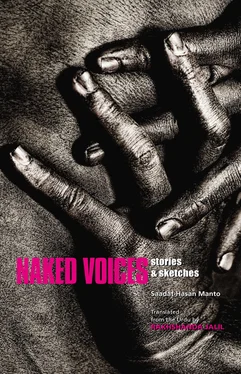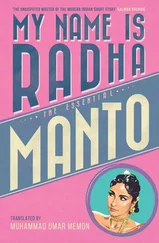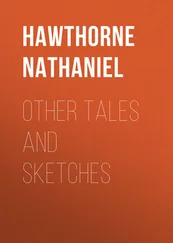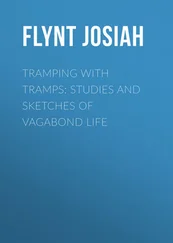Jugal downed three or four pegs, becoming quieter than ever till he finally went to the other room to lie down. Brijmohan and I stayed with Mumtaz while he went about settling his accounts. He chattered and laughed as he paid the doctor’s bills and retrieved his clothes from the laundry. But when he bought a paan from Govind’s corner shop, his eyes welled up. He put a hand on Brijmohan’s shoulder as he turned away and said, ‘Remember, Brij, ten years ago when times were lean, Govind had loaned us one rupee.’
Mumtaz stayed quiet all the way back but once home he started his non-stop monologue. The words kept tumbling out, with neither head nor tail, yet they were so entertaining in themselves that, willy-nilly, Brijmohan and I got caught up in the banter. As the hour of his departure drew closer, even Jugal joined in. But as the taxi took us towards the dockyard, all four of us fell silent.
With his eyes, Mumtaz seemed to be bidding adieu to the wide streets and boulevards of Bombay.
The taxi deposited us at our destination.
The dock was crowded with thousands of refugees. Very few looked happy and prosperous; the vast majority looked poor and dishevelled. In that milling crowd, I felt it was only Mumtaz who was leaving, not the others. He was leaving us and going away to a land he did not know, a country that would remain a stranger to him no matter how hard he tried. But those were my views. I couldn’t fathom what Mumtaz was thinking of at that moment.
Mumtaz took us up to the deck as soon as his luggage was stowed away. For a long time he kept gazing at the horizon — where the sea and the sky seemed to meet. He took Jugal’s hand in his own and said, ‘It’s only an illusion — this meeting of the sea and sky — but what a delightful illusion this union is, isn’t it?’
Jugal stayed silent. Perhaps at that moment too, his own words — ‘I have been thinking, you know, that I just might kill you’ — were tormenting him.
Mumtaz ordered some brandy from the ship’s bar. He had been drinking brandy since early morning. Glasses in hand, the four of us stood by the ship’s railing. Refugees were pouring into the ship and gulls were skimming over the almost-still sea.
Jugal swallowed his brandy in a single gulp and blurted out in an awkward hurry, ‘Forgive me, Mumtaz, I think I hurt you that day.’
After a moment’s silence, Mumtaz asked, ‘That day when you said “I have been thinking, you know, that I just might kill you” did you really mean it? Tell me honestly.’
Jugal nodded his head to say ‘yes’ and said, ‘But I regret it sorely.’
‘You would have regretted it more had you killed me,’ Mumtaz sounded philosophical. ‘But only if you considered that you had killed Mumtaz, a Muslim, not a friend but a human being. If he was wicked you didn’t destroy his wickedness. If he was a Muslim, you didn’t destroy his Muslim-ness, but only the living proof of his being. If his corpse had fallen in the hands of Muslims, there would have been one more grave in some graveyard but one human being less in this world.’
Mumtaz was quiet for some time, as though lost in thought, then he started speaking again, ‘Maybe my fellow Muslims would have regarded me as a martyr. But, by God, if it was at all possible, I would have burst through my grave and shouted, “I refuse to accept this mantle of martyrdom. I don’t want a degree for an exam that I haven’t taken.’’ A Muslim killed your uncle in Lahore. You heard the news in Bombay and killed me. Tell me, what medal would you and I deserve? And, in Lahore, what prize would your uncle and his killer deserve? I would say that those who died, died a dog’s death and the killer got his hands stained with blood needlessly — absolutely needlessly.’
Mumtaz became very emotional as he talked. But there was love even in his excitability. His words made a strong impact on me. At that moment I believed that religion, faith, belief — whatever they might be — resided in our souls, not in our bodies. They could not be destroyed by knives and swords and guns. And so I said to him with great feeling, ‘You are absolutely right.’
Mumtaz took stock of his thoughts and said with some restlessness, ‘No, not at all, I mean this is all very well but perhaps I am not able to say very clearly what I truly want to say. By religion I don’t mean the sort of thing in which ninety-nine per cent of us are trapped. By religion, or faith, I mean that other quality that elevates us above our fellow men, one that gives us a certain special aura that truly makes us human. But what is that thing? Unfortunately, I can’t place it on my palm and show it.’ A strange gleam came into his eyes and he began talking to himself, ‘What was so special about him, after all? He was a staunch Hindu. He had a most despicable profession yet his soul was resplendent.’
I asked, ‘Whose?’
‘A pimp’s.’
The three of us were startled. There wasn’t the slightest trace of false modesty in his accent. I asked with complete seriousness, ‘A pimp’s?’
Mumtaz nodded, ‘I am surprised that he was a mere mortal. In fact, I am more surprised that for most people he was just a pimp, a man who traded in women, but his soul was pristine.’
Mumtaz was quiet for some time, as though he was refreshing old incidents in his mind. Then, he started speaking, ‘I don’t remember his full name — it was “Something Sahay”. He was from Benares. He was very fastidious. He operated from a tiny room but kept it immaculately clean. He had it neatly curtained off to ensure privacy. There were no beds for the clients, but there were mattresses and pillows. The sheets and pillowcases were always spotlessly clean. He had a servant yet he cleaned the place himself. In fact, he did everything himself. He never lied or cheated. If it was very late in the night and the only liquor available was likely to be cheap booze mixed with water, he would tell his customers not to throw their money. Or, if he had qualms about a girl, he would come clean and say so. He once told me that he had earned twenty thousand rupees in the last three years — by taking two-and-a-half rupees as commission on every ten rupees that his girls fetched him. He wanted to earn another ten thousand — I don’t know why only ten thousand, why not more. He told me he would return to Benares when he had earned his thirty thousand and open a cloth shop. I can’t say why a cloth shop, why not some other trade.’
At this point, I could no longer contain myself and interrupted, ‘What a strange man!’
Mumtaz continued, ‘I used to think he was bogus through and through, a fraud from head to toe. Who could believe that he thought of the girls who plied his trade as his daughters? I found it very surprising that he had opened a savings account for each girl in the post office where every month he would deposit her earnings. It was equally preposterous that he paid for the boarding and lodging of ten or twelve girls. I thought there was guile and artifice in everything he said and did.
‘One day when I went to his establishment, he said, “Amina and Sakina are on leave today. I give them a weekly off so that they can go out and eat non-vegetarian food. Here, as you know, I run a strictly vegetarian kitchen.” I smiled to myself thinking he was trying to pull a fast one on me. Another day he told me about the Hindu girl from Ahmedabad he had got married to a Muslim customer. She lived in Lahore now and had written to say that she had prayed at the shrine of Data Sahab and her prayers had been answered. Now she was praying for Sahay to collect his thirty thousand rupees so that he could go home and start his draper’s business. I heard this and laughed out loud. I thought, “He is saying all this to please me because I am a Muslim.”’
Читать дальше












